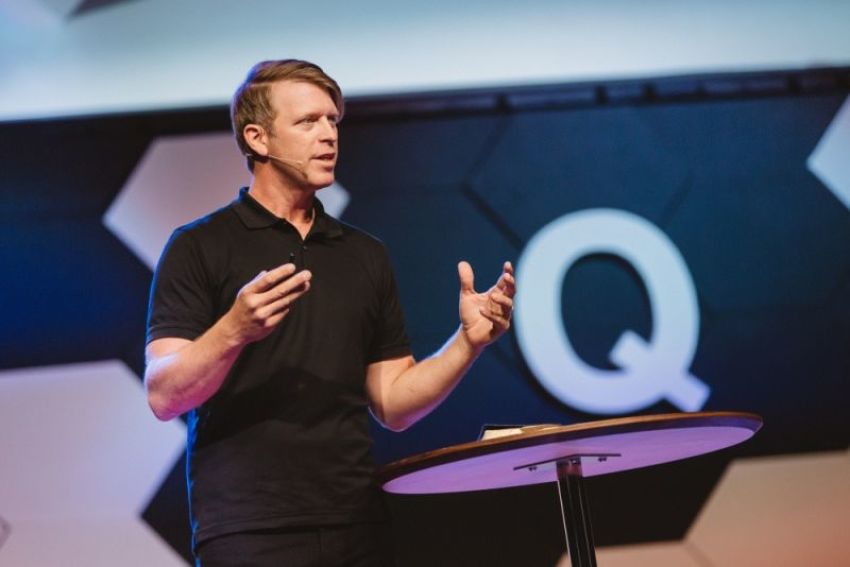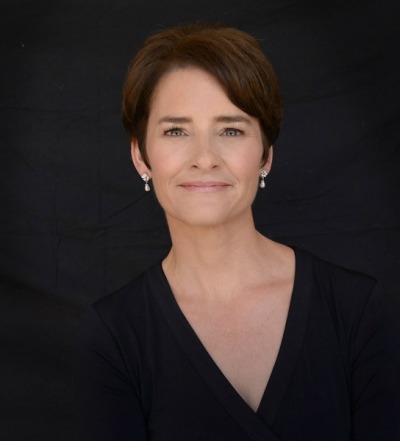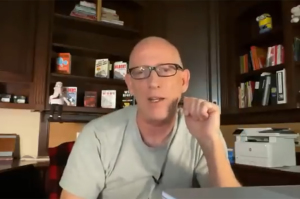Q Conference Founder Gabe Lyons on Evangelicals in the Age of Trump (Interview)

Imagine a conference of rapid-fire TED-like talks on the intersection of faith and culture and you have an idea of what the annual Q Conference is like. For the past 10 years, Q has gathered hundreds of Christian leaders to this unique event. But this year's Q Conference in Nashville was bigger than ever with more than 1,800 people attending the two-and-a-half day conference.
As usual, the conference featured an incredibly diverse array of speakers, from hip-hop artist Propaganda urging Christians of all backgrounds to find common ground – to conservative author Rod Dreher encouraging believers to follow the model of St. Benedict.

I have attended Q every year for the past five years and have always found the conference to be intellectually stimulating and a good barometer of how Millennial Christian leaders are thinking. (The median age of Q attenders is mid-30s.) At times, though, I have been concerned that the conference gives platform to Christians espousing views outside of established Christian doctrine without offering much direction.
For example, the Q Conference in Boston two years ago featured several persuasive speakers advocating for gay affirmation, but those arguing against it were weak at best. And none offered any redemptive vision for those experiencing unwanted same-sex attraction.
However since then, Q founder Gabe Lyons has intentionally provided more leadership on controversial issues, while still challenging Christians to wrestle with views different than their own. I thoroughly enjoyed this year's event and felt it reflected a maturity and wisdom that Lyons has cultivated over the years. On the last day of the conference, I connected with Lyons and got his perspective on this unique movement.
Julie: Last Q, you told me that you felt like there was a real need for you to take leadership. And you've definitely done that, affirming a biblical sexual ethic, for example. I'm wondering if you've taken a lot of flack for that, but also if you've seen good fruit come from it, as well?
Gabe: Well, I think in my own leadership, I realize that a lot of people in the church have confusion about what the role of the church is in culture today. And Q sits in a really influential spot, and we take that role seriously and felt like we needed to do more to ensure clarity versus confusion. . . . But no. I actually haven't felt a lot of pushback. . . .
And honestly, I've seen more people galvanized and given new confidence to realize you can talk about these difficult topics, and you can do it in love and kindness. You can honor other people and respect their dignity while still disagreeing about ideas. And I think I've seen more and more people encouraged, and willing themselves to go and have those kinds of difficult conversations because they're seeing it modeled in a respectful way, even when it's difficult.
Julie: I noticed at this Q that there has also been a lot of talk about what it means to live faithfully in the age of Trump, especially for evangelicals. As Rod Dreher said during a panel discussion, whether evangelicals voted for him or not, "We own this." Yet I remember from a survey at Q last year that most people who attended Q did not support Trump. Yet now they're part of a movement that is associated with him. And there are some people saying, "Well, I'm no longer an evangelical. I'm not even going to identify with this," right? So, what does that mean for evangelicals moving forward?
Gabe: Well, I think you're right. The majority of the Q audience when we surveyed them were not Trump supporters at all. And many of them, while the media would classify them as evangelical, and we'd probably look at their beliefs and say they're evangelical, they certainly don't use that word as a term to define who they are. They see themselves as Christians . . . .
For over a decade at Q, we've been saying that you don't change culture through political power. You change it by showing up in your own community, creating culture, creating forms, organizations, services, projects, books, and music that shape the imagination. It actually flows downstream and can help people see a tangible expression of God's love and His kingdom.
And so this political moment, while a crisis for many in the evangelical church, I feel like at Q, there's never been a lot of stock put into our government, and who's leading our government, as the answer and solution to the challenges our culture faces. But we take personal responsibility in our churches to say we actually are a part of the fabric of these communities. We have an opportunity to lead in a very unique way.
We bring together leaders from all of these different channels of culture in a common purpose that's pointed toward serving our neighbor, insisting on human dignity, extending hospitality, and ordering our vocations and our work towards the common good of other people. And that's a very refreshing approach that many people haven't experienced in Christians.
Julie: I thought it was really interesting after one of the talks someone who's attending Q for the first time said to me, "You know, I realize I've never really thought through these issues that deeply. And this is really challenging me to think through them." And, I really appreciated Ryan Anderson's talk, making the case for reason in this age of emotivism. Why is it important, in this postmodern age, to make an argument for reason – and to encourage church leaders to come to something like this where they're going to challenged to think?
Gabe: Well, as Christians, we know biblically that we're called to have a sound mind. And that actually shapes how we're responding and thinking through things.
Theology matters. What God's design is for human flourishing matters. If we're only caught up in how we're feeling, and that's how we're trying to define truth, then we're always going to miss the mark.
And so Q, since our inception . . . we have the moniker, "Stay curious. Think well. Advance the common good." And we put thought in there because we think reasoning has been a bit of a lost art for some Christians – not for all traditions, but for some. Especially in evangelicalism, there's a hunger for us to ensure that the way that we share our faith, talk about our faith, is coherent. It makes sense in the world around us.
Chuck Colson was a mentor of mine, and the theme of his life that inspired a lot of our work was that Christians are called to redeem entire cultures, not just individuals. We have a dual purpose in the world, and they're both important, and we give 100% to both, not 50/50. And so that helps accomplish evangelism, but it also helps advance common grace, which holds back the elements of the fall that would otherwise overwhelm creation. And I think we at Q have been urging Christians to engage at the thoughtful level, not only the emotional level.
We're not trying to keep up or be relevant to the culture, but actually realize we're supposed to be leading in the ideas that people are discussing. We have so much to contribute, Christianity always has, to western civilization -- to so much of what our world enjoys today.
Things like human rights, something we talked about a lot yesterday, this is birthed out of Christian teaching and Jesus Christ himself. And yet the world loves human rights, and loves talking about it, but they don't even understand they're advancing a Christian idea when they talk about human rights! And so we want Christians to realize this comes from our heritage.
Julie: One of the things about Q is that you always have people that are a little out of the box. You had a Muslim here this time. You also had a woman who used to be an LGBT activist, Miriam Ben-Shalom. Why do you think it's important for Christians to hear these voices that are kind of outside of the box, even outside of our faith tradition?
Gabe: Well, in David Kinnamon and I's book, Good Faith, one of the research statistics that concerned us was that evangelicals of all the groups – Muslims, LGBT community, Mormons – that evangelicals were the least likely to be able to have a conversation with somebody outside of their tribe. So at Q, we really are trying to expose people to those outside of our tribe. They were thoughtful. They were engaging. We found common ground.
So yeah, Shadi Hamid, a New York Times best-selling author and a Muslim gives a great presentation on how Muslims are thinking about their future right now, which is important for Christians to understand.
Miriam sharing about her views as a leader in the LGBT community who's been shunned because she's spoken out so strongly on protecting women's rights and not letting them be infringed upon by those who would use the transgender laws and other things to infringe upon women's spaces – she's provocative. But she's worked together with a conservative Christian to advance that issue.
So it's a great modeling of civility, of friendship, and love that can surpass ideological differences. And that's something our world needs to see more of, and we're proud to be bringing that to people.



























